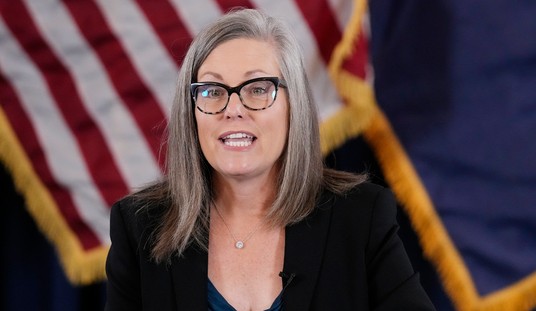One of the most common tropes of the gun control movement is to proclaim that they're not opposed to the Second Amendment at all; they're just in favor of a few (okay, more than a few) "common sense regulations" on the right to keep and bear arms. Of course, those same groups can never come up with a gun control bill that isn't common sense in their mind, much less one that they admit violates the right to keep and bear arms.
Well, almost never, anyway. As it turns out, the gun control group 97 Percent, which claims to represent gun owners interested in "gun safety", has finally seen a gun control law that crosses their line in the sand. It's not a ban on "assault weapons" or large capacity magazines, a "red flag" law, gun rationing, or "universal" background checks; none of which have caused any consternation for the group in the past. No, it's California's new law requiring credit card companies to use specific merchant category codes for gun stores, which will supposedly allow those companies to identify suspicious purchases and report them to the Treasury Department for investigation.
Should gun store sales get special credit card tracking?
— 97Percent (@97Percentorg) July 3, 2024
We say: While there is hope that this information can be used to flag suspicious gun-related purchases, we feel the law has an intrusive 'big brother' quality to it that could leave gun owners vulnerable to overreach.…
That's a pretty mealymouthed statement of opposition, isn't it? The law could leave gun owners vulnerable to overreach, but there's also hope that it will stop an active shooter from carrying out an attack by identifying their "suspicious" purchase and alerting law enforcement.
How about this instead: if this law is used, there will be false flags raised against gun owners making legitimate purchases. And the prospect of identifying someone who's prepping for mass murder is almost nil.
We've detailed before how California's new law mandating the use of these codes (which will also soon be required in Colorado and New York) will work in practice once stores are required to use them beginning next May, and why they're not the valuable tool anti-gunners claim them to be. The only information available to the credit card companies will be the total amount spent at a particular gun store. There's no way to peek into the shopper's cart, so to speak, so companies like Visa and Mastercard are essentially flying blind when it comes to determining whether a purchase should raise red flags. .
There's also no real guidance about what constitutes a "suspicious" purchase. Defenders of the California law claim that multiple purchases over multiple days will trigger suspicions, but they're apparently unaware of the state's "1-in-30" law that limits gun owners to the purchase of one firearm every 30 days. Is buying one gun a month cause for suspicion? One every two months? One every six months? It's essentially up to the credit card companies and banks to decide whether or not to report those transactions to the feds.
Given that, are these companies more likely to overreport or underreport any "suspicious" purchases? The law incentivizes the financial sector to flag as many purchases as possible and leave it up to the Treasury Department to investigate further. There's no penalty for supplying the federal government with information on transactions that turn out to be above-board, but if these companies don't report a transaction that eventually results in a crime being committed, they're opening themselves up to all kinds of civil litigation from victims and their families.
Former (and perhaps future) District Attorney George Brauchler, who prosecuted the Aurora theater killer and several other high-profile mass shooters in Colorado, has warned that mandating the use of these codes will not only lead to overreporting, but the demise of independent gun shops who could be cut off by risk-averse credit card companies. As for the potential to save lives, Brauchler points out that "for those planning mass murder, or just trying to avoid their purchasing decisions from being handed over to the government, the use of cash to purchase firearms and ammunition would defeat this misguided and ineffective" law.
Should 97 Percent get any credit for their half-hearted objection to the mandated use of these codes? I'm glad to see that there's some gun control measure the group takes issue with, but I'm not about to cut them a check anytime soon. It's still an organization that's devoted to making it more difficult and legally dangerous to exercise a fundamental civil right in the name of public safety, and its opposition to merchant category codes doesn't make up for all of the gun control legislation it continues to support and endorse.








